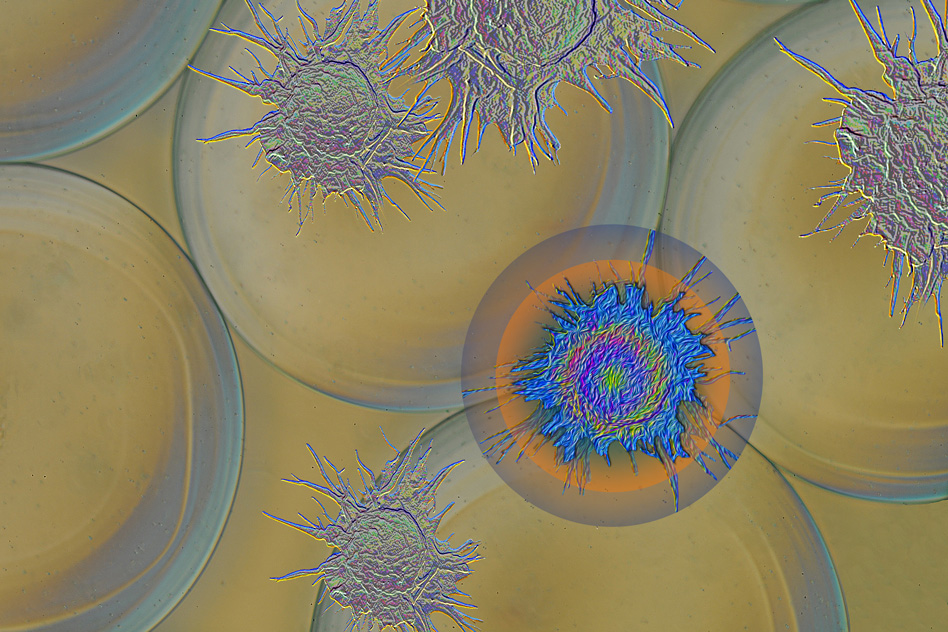Selectively blocking immune cells can prevent formation of scar tissue around medical devices.
Medical devices implanted in the body for drug delivery, sensing, or tissue regeneration usually come under fire from the host’s immune system. Defense cells work to isolate material they consider foreign to the body, building up a wall of dense scar tissue around the devices, which eventually become unable to perform their functions.
Medical devices implanted in the body for drug delivery, sensing, or tissue regeneration usually come under fire from the host’s immune system. Defense cells work to isolate material they consider foreign to the body, building up a wall of dense scar tissue around the devices, which eventually become unable to perform their functions.
Researchers at MIT and Boston Children’s Hospital have identified a signaling molecule that is key to this process of “fibrosis,” and they have shown that blocking the molecule prevents the scar tissue from forming. The findings, reported in the March 20 issue of Nature Materials, could help scientists extend the lifespan of many types of implantable medical devices.
“This gives us a better understanding of the biology behind fibrosis and potentially a way to modulate that response to prevent the formation of scar tissue around implants,” says Daniel Anderson, an associate professor in MIT’s Department of Chemical Engineering, a member of MIT’s Koch Institute for Integrative Cancer Research and Institute for Medical Engineering and Science (IMES), an affiliate at Boston Children’s Hospital, and the senior author of the study.
The paper’s lead author is [former] Koch Institute and JDRF postdoc [and now Professor of Biomedical and Materials Science Engineering at Johns Hopkins University] Joshua Doloff.
To read the full article visit: http://news.mit.edu/2017/blocking-immune-cells-scar-tissue-better-implants-0320


